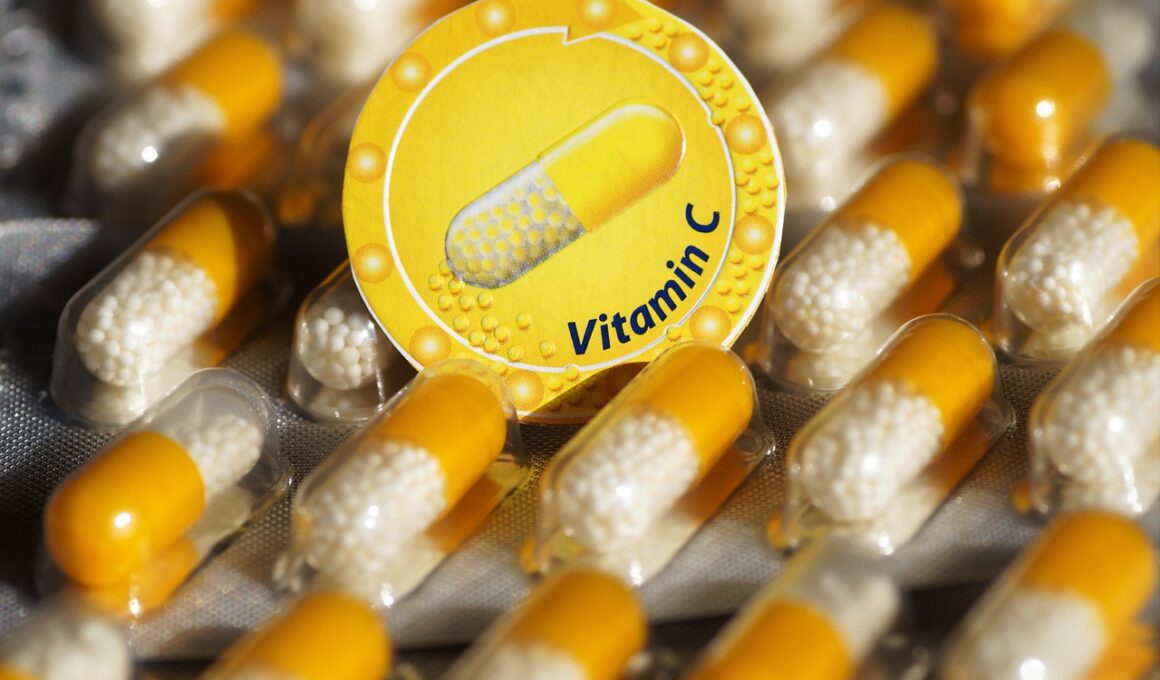Vitamin C: Myth vs. Reality in Cat Nutrition
Vitamin C is frequently touted as an essential nutrient for many animals, but when it comes to cats, the reality is far more nuanced. Unlike humans, cats can synthesize Vitamin C from glucose, meaning they do not require an external dietary source. This unique metabolic ability leads to some misconceptions surrounding the role that Vitamin C plays in feline health. Many cat owners believe that an extra boost of Vitamin C will enhance their cat’s immune system or provide additional health benefits. However, excessive amounts can lead to adverse effects, including gastrointestinal upset and potential kidney issues. It’s crucial to understand that cats are not naturally prone to deficiency in Vitamin C. In staples of a well-balanced diet, such as high-quality meat diets, they obtain sufficient quantities of this nutrient. The misconception often lies in assuming that because other pets, such as dogs, do require supplementation, cats must as well. Understanding how a cat’s physiology works is vital for making informed feeding decisions. Healthy cats thrive on complete and balance diets, and extra supplementation may do more harm than good.
The feline diet, primarily consisting of meat, naturally provides the nutrients necessary for optimal health. In fact, many commercial cat foods are formulated based on both the specific needs of cats and the essential nutrients they should receive. One concern with over-supplying Vitamin C is the impact it can have on a cat’s digestive system. Cats are not designed to handle excessive quantities of this vitamin; instead, their bodies are fine-tuned to utilize it in appropriate amounts. Thus, introducing supplements could lead to a surplus, potentially resulting in issues including diarrhea and vomiting. Furthermore, the notion that Vitamin C can prevent illness in cats lacks substantial scientific backing. While it does possess some antioxidant properties, the need for supplementation in otherwise healthy cats remains unproven. Owners must consult with veterinarians before introducing any new supplements into their cat’s diet, as improper use can lead to complications. Overall, ensuring a cat receives a complete diet tailored for its breed and dietary needs remains the best approach for sustaining health and longevity.
The Functionality of Vitamin C in Cats
Vitamin C, or ascorbic acid, is known for its various roles in the functioning of the immune system across different species. While it is crucial for humans, especially for collagen synthesis and as an antioxidant, cats do not experience the same benefits from supplementation. The importance of Vitamin C shifts when considering its effect on cats. Although they can synthesize it themselves, they still possess the biochemical machinery to utilize Vitamin C effectively in specific instances, such as stress or illness. Factors like these might elevate Vitamin C levels or increase the need for it within a cat’s body. However, the challenge lies in determining when and how much extra Vitamin C is needed, as these levels can differ widely on an individual basis. At the same time, certain health conditions may compromise a cat’s ability to synthesize this vitamin naturally, warranting further investigation. Cats suffering from chronic diseases might benefit from enhanced nutrition, but this is usually best achieved through tailored diets rather than through indiscriminate supplementation. Thus, the necessity of this vitamin remains a topic of debate, suggesting a more personalized dietary approach.
Moreover, many researchers continue to investigate the role of Vitamin C in overall feline health. For troubled pets exhibiting signs of illness such as stress, fatigue, or a weakened immune response, targeted nutrition can have a more profound effect than broad supplementation. Rather than resorting to Vitamin C pills or powders, it would be more effective for owners to focus on providing well-balanced meals that support their pet’s physiological needs. Integrating other components into their diet, including omega fatty acids and probiotics, can further bolster overall health and help maintain a strong immune system. By keeping a watchful eye on their cat’s condition and recognizing when they might need an extra boost, owners will be better positioned to make calorie management and dietary improvement decisions. Additionally, incorporating functional foods naturally rich in nutrients offers a holistic approach to cat nutrition that often realizes better results. Therefore, while Vitamin C has its merits, it is clear that a comprehensive view of feline nutrition remains the best course of action to foster a resilient and sturdy cat.
Common Myths Regarding Vitamin C
Myths surrounding Vitamin C in cats often mislead owners about their responsibilities in managing feline nutrition. One prevalent misconception suggests cats require additional doses of this vitamin, stemming from the familiarity many have with other animals, particularly humans and dogs. Misunderstanding basic feline metabolism encourages some owners to feel guilty when they do not actively provide Vitamin C supplements. In reality, quality cat food supplies adequate nutrients and enables natural synthesis. Another myth asserts that cats, like humans, will become ill without adequate Vitamin C in their diet. This idea can lead to unnecessary panic, as most cats lead healthy lives without needing external supplementation. Owners are again reminded to prioritize a balanced diet, allowing them peace of mind regarding their cat’s health and nutritional needs. Finally, some believe that all supplements are beneficial, regardless of quantity, which is misleading. The truth is too much Vitamin C can adversely affect health rather than enhance it. Owners must understand that while formulating a healthy diet is essential, less is often more when it comes to supplementation.
Moving beyond myths, it becomes clear that providing effective cat care requires education and awareness tailored to this species. Cats are unique in their dietary requirements, and awareness of those specifics is crucial for long-term wellbeing. While the usage of supplements might appear as an easy remedy for perceived deficiencies, the once thought benefits become questionable when scientific scrutiny is applied. Research and continuous developments encourage pet owners to investigate and understand the nutritional needs specific to cats before introducing anything new. A well-balanced diet catered to their physical demands will prevent complications while offering peace of mind. Owners must also remain vigilant for signs of distress or illness, as seeking veterinary advice will reinforce good practices. A health-conscious approach includes discussions about dietary needs and possible supplements with a trusted veterinarian. The crux of proper nutrition lies not in following trends but in understanding each pet’s individual needs. Engaging with a professional can help owners optimize their feeding routines while ensuring their beloved companions thrive with energy and health.
Conclusion: A Balanced Approach to Cat Nutrition
In conclusion, navigating the intricacies of feline nutrition can often lead to confusion, especially concerning the necessity of Vitamin C. Debunking myths surrounding its importance offers clarity in adopting a balanced diet aimed at sustaining optimal health. Nutrition plays a crucial role in maintaining a cat’s vitality and vigor, and owners should focus on quality rather than excessive supplementation. Thorough education about their dietary requirements encourages responsible ownership and better decisions regarding feeding practices. Choosing high-quality commercial cat foods that meet all nutritional standards provides security that pets are receiving the necessary nutrients, including Vitamin C, without the risk of overdose. The well-being of every cat lies in the hands of a committed owner and continuous research into safe, effective feeding options. Lastly, engaging with veterinary professionals ensures that all nutritional questions are addressed, and owners are well-equipped to provide the best care. Emphasizing preventive health care rests on a foundation of knowledge about nutrition, ultimately leading to happier, healthier cats, free of unnecessary risks and complications.
Cats benefit from nutritional choices that align with their naturalistic dietary needs rather than following misconceptions surrounding vitamins and supplements.


